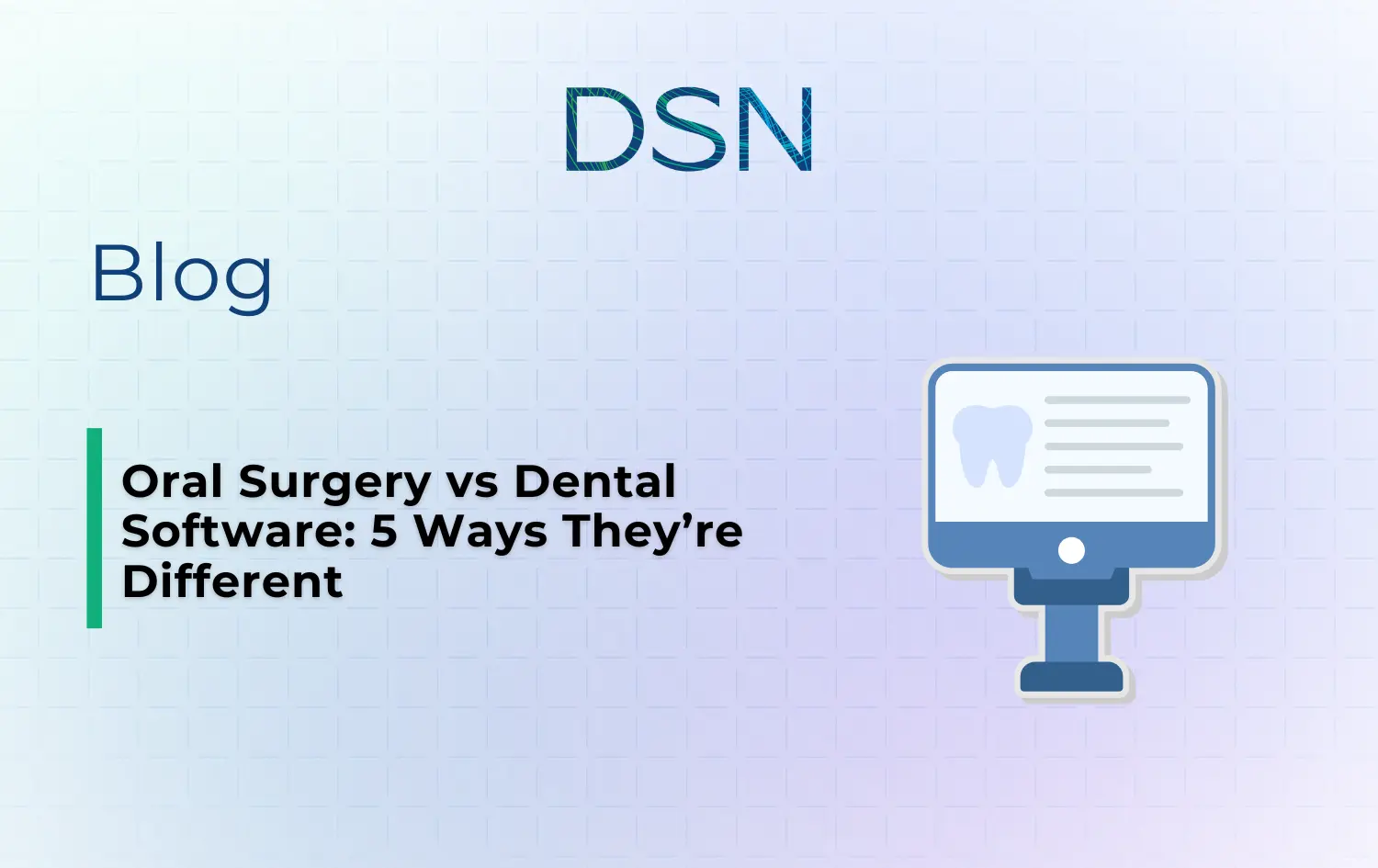When comparing oral surgery vs dental software, it becomes clear that these systems are designed with very different workflows in mind. Dental platforms often work well for hygiene and restorative practices, but oral surgery practices need tools that handle surgical documentation, complex scheduling, medical-dental coding, and referral management. Understanding these differences can help surgeons and administrators choose software that supports growth instead of creating bottlenecks.
Why Oral Surgery vs Dental Software Matters
At first glance, it may seem like any dental system can be adapted for oral surgery. But the truth is, general dental software often struggles to keep up with the unique demands of a surgical practice. The gaps show up in lost time, increased claim denials, and frustrated staff.
So, what sets oral surgery software apart? Let’s break down five of the most important differences.
1. Documentation Templates
- Dental software: Comes with templates focused on exams, hygiene visits, and restorative work. Customization is required for surgical notes, anesthesia documentation, and medical necessity statements.
- Oral surgery software: Includes built-in templates for extractions, implants, grafting, and anesthesia. Notes are structured to align with compliance and billing requirements, reducing the risk of denials.
For surgeons, this difference means less end-of-day fatigue and more accurate records.
2. Scheduling and Case Management
- Dental software: Designed for shorter, recurring hygiene appointments. Surgical blocks and complex workflows are harder to manage.
- Oral surgery software: Allows block scheduling, links consults with surgery and follow-ups, and prevents double-booking of providers or operatories.
The result is smoother patient flow, less chaos for staff, and better use of provider time.
3. Billing and Coding
- Dental software: Built around CDT codes and dental insurance submissions. Medical billing and cross-coding often require workarounds.
- Oral surgery software: Integrates CDT and ICD-10 coding, supports cross-coding, and ties documentation directly to claims.
This reduces errors, improves reimbursement speed, and helps administrators spend less time fixing rejections.
4. Imaging and Referrals
- Dental software: May offer basic imaging integration but doesn’t always support advanced surgical planning. Referrals are often tracked manually.
- Oral surgery software: Connects CBCT, radiographs, and photos directly to the patient record. Referral tracking tools ensure patients are scheduled and referring providers are updated.
With dedicated tools, practices can protect referral relationships and avoid missed opportunities.
5. Reporting and Visibility
- Dental software: Generates basic reports on production and collections but lacks depth in specialty-specific metrics.
- Oral surgery software: Provides detailed insights on referral sources, surgical case volume, coding trends, and provider performance.
These analytics help administrators make data-driven decisions that directly support growth.
Real-World Example: Why Specialty Software Wins
One oral surgery practice described the change this way: “The system is user-friendly and has streamlined our workflow. From scheduling to billing, everything runs more efficiently now.” 【source: DSN Reviews】
That kind of feedback highlights what happens when practices move from general dental tools to systems designed for oral surgery. The difference is not just in features—it’s in how the entire practice feels day to day.
Educational Takeaway
When weighing oral surgery vs dental software, it’s important to consider more than cost or familiarity. Specialty-focused tools are built to:
- Capture accurate surgical documentation
- Simplify coding and claims
- Reduce scheduling errors
- Strengthen referral management
- Provide insights into practice performance
For oral surgeons and administrators, those differences mean less administrative strain, fewer headaches with insurers, and a smoother patient experience overall.
If your practice is exploring better ways to manage operations, DSN offers oral surgery-focused solutions like DSN Cloud and On Prem. You can schedule a demo anytime at dsn.com/book-a-demo
